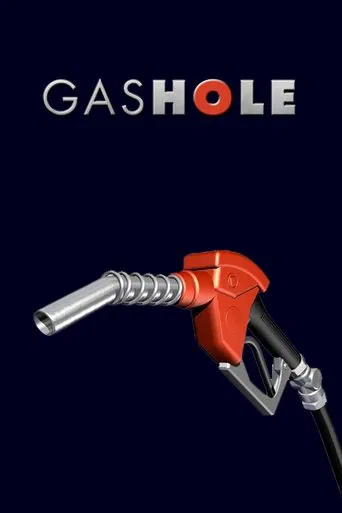

The reviewer claiming "urban legend" about the stories in the film cannot back up that accuastion. I have actually located a listing for the "Fuel Economy of the Gasoline Engine" book mentioned in the film and it is "missing" from my local university's science library, just as they mentioned it is from the library of congress. There is plenty of reason to believe what is stated in this film. Actual patents are shown; articles are shown detailing these events. It is not the case that the "patents" for more economical engines would make more money than continuing to get us all paying a tithe at the thanks constantly. It is very believable to me by looking at the behavior of oil companies the past 50 years, beginning with Standard Oil's monopoly behavior that it got a slap on the wrist for which resulted in ending the era of the street cars in the 1900s, that oil companies have definitely conspired to prevent better gas mileage. It is clear to me from watching gas mileage improve in the late 1970s with Carter's administration and then to watch a competition between car manufacturers until it started going backward in the early 1980s with Reagan, that there was a deliberate effort made to slow technology down. I avoid "tin foil hat" shows and websites but I've watched THIS particular issue my whole life and this film helps fill in a few more blanks about why this has been happening. They don't make any claims and just show what they can document.The stories of H.E. Crozier (Modesto, CA), David Blackmore of Shell (author of "Fuel Economy of the Gasoline Engine"), Tom Ogle (El Paso, TX - documented by the El Paso Times, El Paso Journal, and Argosy magzine in 1977). I agree with the cynical reviewer in his stating that a gas-efficient carburetor such as getting 200 mpg isn't the ideal solution at this point given climate change issues; the real solution is to get away entirely from petroleum fuels entirely. But this behavior of oil companies squelching energy technologies such as the simple change to better gas efficiency, along with the pushing away from the GM EV1 electric car in the 1990s. I have read and seen oil CEOs state flat out (without realizing the implications) that the oil companies "help" auto manufacture with design consultations for their engines. There is a good bit of logic and evidence for this shameful state of affairs regarding corrupt oil industry players slowing down progress in technology -- even to the point of letting our planet's environment be at risk. Greed apparently is more important to them than doing their part to help the earth against climate change. The oil companies spend only a tiny fraction on new technologies and still remain all in on investment in polluting carbon burning petroleum technologies.The points made in this film are therefore quite believable and carefully documented, without displaying more than they were able to find. I would have scored it higher if they would have gone further in their investigations.
... View MoreThe first half hour of the film is wasted on a persistent urban legend - that backyard inventors developed a 100-mile-per-gallon carburetor 50 years ago that was bought up and suppressed by the multinational oil companies. If such an invention really worked, the auto industry would have developed and commercialized it to increase the market appeal of their vehicles and reduce tailpipe pollution. There would have been no way the oil industry could have prevented it. Conclusion: the 100-mpg carburetor (installed on a heavy old clunker of a vehicle) is a hoax. More believable documentation than the reminiscences and speculations of some old tinkerers is absent from the film because such documentation - independent successful test results, substantive assessments by real experts on engine efficiency, etc. - does not exist.From that inauspicious beginning, the film goes on to prove that the oil industry is ruthless, profit-maximizing, and indifferent to the interests of consumers. All granted. The same is true of huge corporations in general. Belaboring the point is simply boring. The lengthy scenes of Congressional hearings were predictable, uninformative, irrelevant, and tedious.The worst fault of the film is that its main thrust is untrue: that solving America's oil addiction is mainly a matter of overcoming political opposition and will be relatively cheap and easy once we get the evil oil corporations under control. The film omitted the critical fact that for biofuels to replace fossil petroleum would require all of the arable land in the US and more. We would have to shift our agricultural economy entirely from food to fuel, and even that wouldn't come close to doing the job. Hydrogen was given a fleeting mention, but the film omitted the fact that producing H2 requires a large amount of energy. Germany did not use hydrogen in vehicles in WW2, as one non-expert spokesperson said in the film; it used liquid fuels synthesized from coal at great economic and environmental cost. It would have been easy for the filmmakers to check this fact and omit the hydrogen enthusiast's misstatement from the film, but they didn't bother to do so. There is a solid reason fossil petroleum has dominated our transportation economy for a century. It is cheap, energy-dense, transportable, and convenient. When it runs out, there will be massive economic dislocation and worsening international conflicts. Worldwide energy use will have to decline precipitously, and fanciful carburetors installed in SUVs will not comprise any part of the solution.Do not waste your time watching this film; "The End of Suburbia" is much more informative and scientifically well-documented.
... View MoreThis documentary brings up some interesting issues, and makes some good points, but seems to be poorly done. I agree with a lot of the ideas in the movie, but I wish they had more facts and show where they got their information. Also they don't mention other alternate forms of energy. The filmmakers focus too much on conspiracy theories and bio-diesel (which is still pretty dirty). I feel like they did not do enough research when they made this movie. The idea that we use too much gasoline is true. I also agree that there are great alternatives to old gasoline cars, but this movie just doesn't make a great case for those issues. I think they could have spent some more time supporting their issues and making the movie a higher quality.I had high hopes and I just feel disappointed. I liked "Who Killed the electric car better"
... View MoreIf we start with a complete lie about 100 mpg, this movie started as an epic failure. The fact is that the US economy is completely dependent on oil and there's nothing, absolutely no way out. As expensive as it is, it's the cheapest energy source and will be for 50 years (until it is gone).The United States government can continue to support dictatorships which keep the price of oil a little bit lower, but the motivation for such action is pure greed. The United States pulled out of the Libyan war very quickly and not for any noble reason. The republicans pulled a paper tiger out of their butt saying that Obama started an illegal war. When they first arrest Dubya, then I'll start listening. Otherwise, talk to the hand. Republicans whine about some illegal war because it's 'bad for business' (drives up the price of oil).
... View More